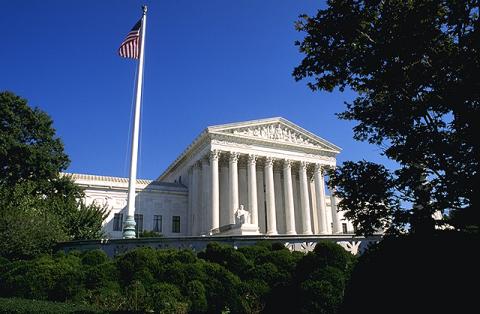
Perhaps no issue is more important to Donald Trump’s chances for getting support of conservatives, which means elected president, than who he would place on the Supreme Court.
Many Republican and independent voters may put aside their doubts about other issues if they feel confident that Trump’s appointments to the Court will be significantly better than those of Hillary Clinton. That is why Trump’s release last of week of a list of judges he would consider for the Supreme Court was an important step toward uniting Republicans behind him.
It’s not hard to see why so many Republicans (and independents) put this issue at the top of their list. The Constitution is the supreme law of the land, the law that governs all other laws. Faithful obedience to that Constitution, especially by the Supreme Court, is essential.
The Supreme Court has sometimes been a powerful barrier to politicians seeking to subvert the Constitution, but just as often it has been the vehicle for twisting the Constitution into something its authors never intended.
We can be grateful for recent occasions when the Court upheld our First and Second amendment freedoms, and when it took the first small steps toward restoring the Federalism summed up in the Tenth Amendment. Unfortunately, that must be weighed against decisions saving ObamaCare, establishing the “right” to abortion and homosexual marriage, and approving a nearly unlimited jurisdiction for the Federal government over states and individuals. The Supreme Court has been responsible for great harm.
Furthermore, the record of appointments by Republican president is mixed, at best. Had all Republican-appointed judges from Eisenhower through George W. Bush been solid conservatives, the history of the past six decades would have been much different. Instead, names such as Warren, Brennan, Blackmun, Stevens, Souter, O’Connor, and Kennedy remind us that only liberal Democrats have been successful at consistently appointing like-mind justices. The move to the left may have been slowed, but it has not been stopped.
Trump’s list of eleven judges has generally drawn good reviews from conservatives (including Judiciary Committee Chairman Charles Grassley) and even libertarians. Some of the names were recommended by the Heritage Foundation, and none appear likely to be another Brennan or Souter.
The fact that five are currently serving on state supreme courts, rather than Federal Appeals courts, could be a welcome sign that Trump is beginning to think about the role of the states in our Federal system. The list also threatens the Harvard-Yale monopoly on the court, with none having attended Harvard and only one Yale. If Trump wanted to signal that he is ready to go outside the legal establishment, he has made a good start.
Including Donald Willett, who has been critical of Trump, Diane Sykes, the wife of anti-Trump talk show host Charles Sykes, and Thomas Lee, brother of pro-Cruz Sen. Mike Lee, appears to show that he is offering an olive branch to conservatives.
However, some judges who would probably have been on the list for any conservative president are missing, and it will take time to obtain a full and accurate knowledge of the eleven.
It is also vital to ask whether Trump would really nominate anyone who respects the Constitution’s limits on presidential power. Trump’s own comments during this campaign have demonstrated that he intends to be as bold in asserting presidential power as President Obama, and perhaps go even farther. If these eleven judges could be expected to declare some of his actions unconstitutional, would he suddenly decide to look for a more compliant judge? It would be difficult to find such a judge anywhere except on the Left.
If these judges survive the scrutiny of constitutional conservatives during the next few months, Trump’s remaining task will be to make a compelling case that this really is his list, not merely a campaign tactic.



